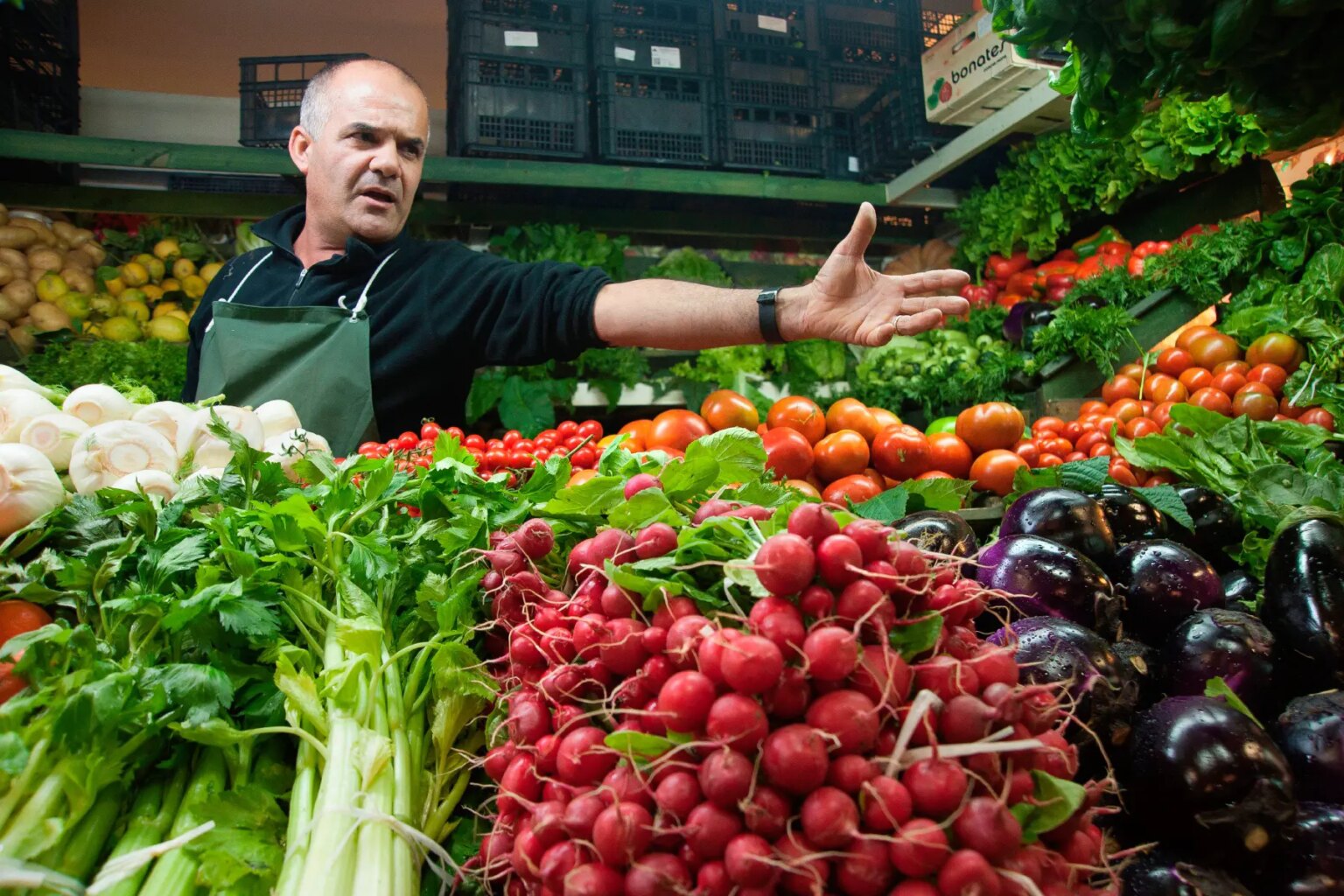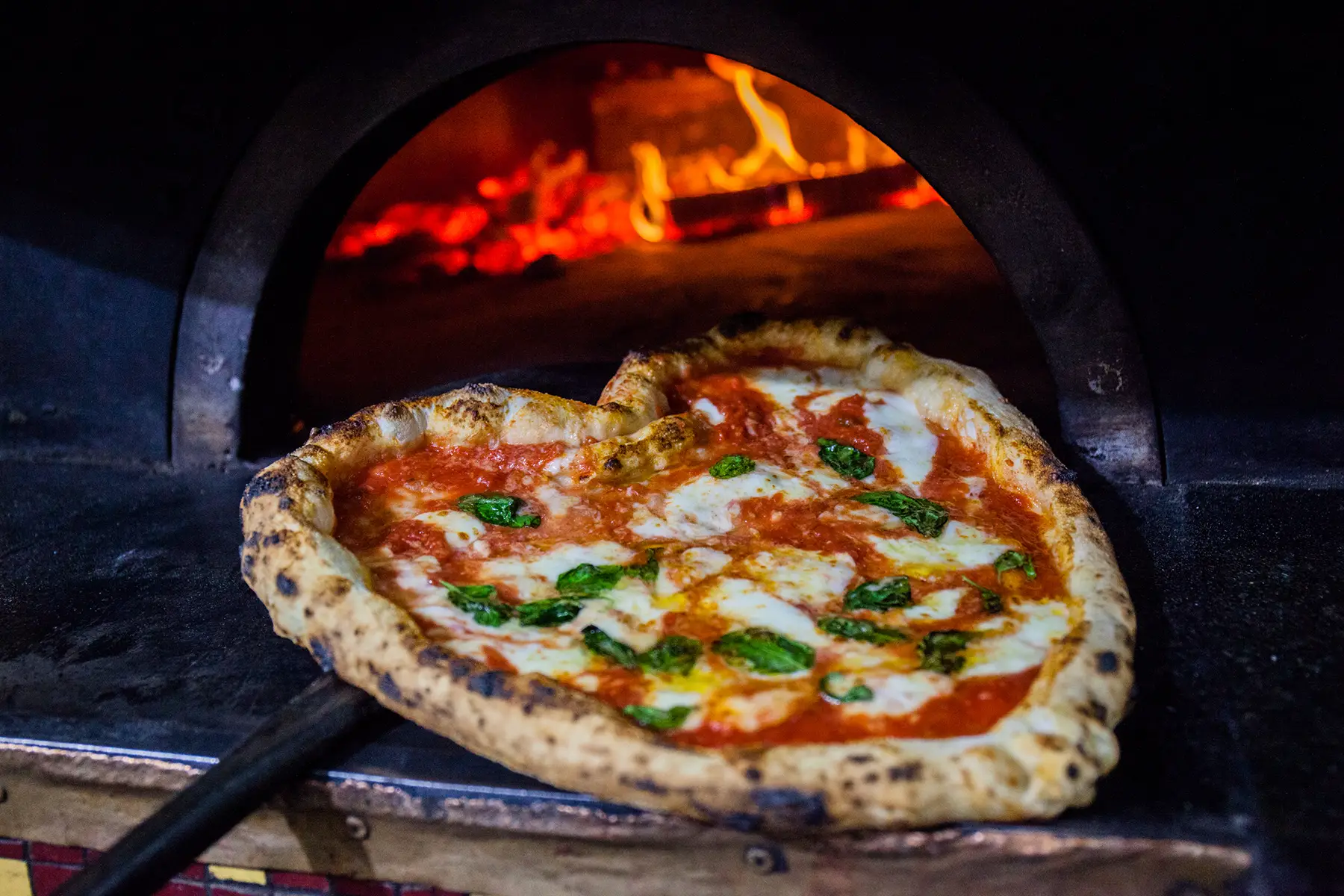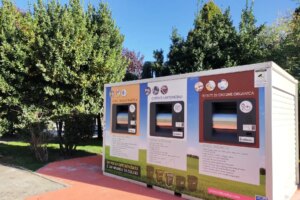If you’re moving to Italy, there’s one thing you need to understand: Italians love their cuisine and take good food seriously.
The first supermarket (supermercato) opened in 1957 in Italy. Before this, the most popular way to shop for groceries was in local specialty stores, small vendors, and outdoor markets. Of course, these markets are still popular and a great place to explore the local culture and practice your Italian as an international. However, supermarket chains gained popularity for their convenience, product range, and affordability – particularly in the past fifty years.
You can quickly learn where to find all your local, international, and organic products in Italy by exploring the following topics:
- Grocery shopping in Italy
- Italian supermarkets
- Online grocery delivery services in Italy
- Organic, bio, and health food stores in Italy
- International grocery stores in Italy
- Food shopping at Italian markets
- Specialty stores in Italy
- Italian convenience stores
- Liquor stores and off-licenses in Italy
- Saving money on groceries in Italy
- Useful resources
Wise
Do your finances go beyond borders? Then you need a fast and secure way to move money internationally. Wise is a global leader in online international money transfers, letting you move money at an exchange rate several times cheaper than your bank. Whatever your personal or business needs, Wise can make your money go further.
Grocery shopping in Italy
You have successfully moved to Italy, decided where to live, and found a job and a home, but your kitchen shelves are empty. Where do you head to first?
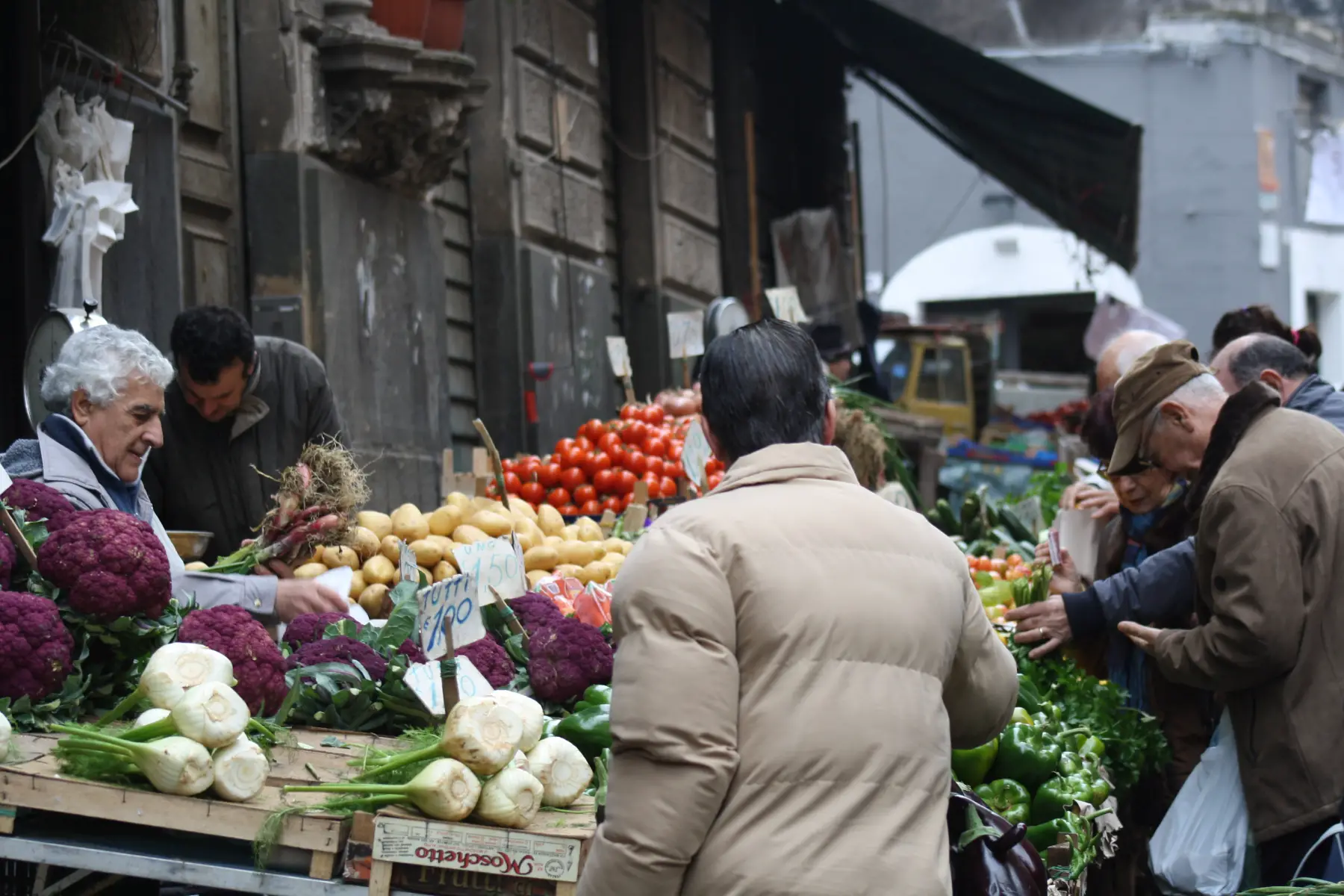
Grocery shopping can be expensive relative to the average income in Italy. For example, a family of four spends up to €8,550 per year on groceries.
There are several grocery shopping options in the country. Supermarkets, mini-markets, and outdoor markets are popular and are usually easily accessible. However, if you’re not ready to jump on public transport or drive around to explore your new city, you can order your groceries online and have them delivered.
Italy’s e-commerce behavior has increased since 2016 – as most households now have internet access, with more than 50% of Italians shopping online (2021). However, this percentage includes electronics, clothes, household and beauty products, more than groceries.
Need organic, seasonal products to live more sustainably or those ingredients to try new Italian recipes? Or maybe – as an expat – you are craving some international products from your home country.
Italy has all of this and more, but let’s start with what will probably be the most familiar: the supermarket.
Italian supermarkets
There are many types of supermarkets in Italy, such as:
- Mini markets in city centers
- Supermarkets in smaller towns and shopping malls
- Hypermarkets (one-stop super-centers) in more rural retail areas
- Discount supermarkets
Generally, supermarkets offer weekly discounts, and most have a points program for savings. Italian grocery stores also offer a large variety of fresh and seasonal produce and many have bakeries, butcheries, and fishmongers in-store. Some larger shops even have pharmacies, electronics, clothes, and homewares.
Supermarket chains in Italy
There are a number of popular Italian supermarket chains. However, many (e.g., Esselunga) are only in a particular region of Italy. Therefore, you might not see all of these stores in your city, be it Florence (Firenze), Milan (Milano), Rome (Roma) or any other town or village.

The leading supermarket chains across Italy – based on their market share – are:
- Conad (23.4%)
- Selex (22.22%)
- Coop (14%)
- Végé (9.02%)
| Supermarket | Description |
| Conad | The leading supermarket with over 3,000 stores countrywide (with hypermarkets, superstores, supermarkets, discount stores, and neighborhood shops). Known for its organic and local produce. |
| Selex | A supermarket group that includes well-known stores like Mercato and Familia. It takes its corporate responsibility seriously, committing to animal welfare, sustainability (sostenibile) practices, and selling fair trade products. |
| Coop | Pronounced kop, a consumer cooperative with over 2,000 stores across Italy. Offers affordable, store-branded products that are not genetically modified organisms (GMO) and are palm oil free. It is an SA8000-certified company, meaning it conducts a fair and decent work environment. |
| Végé | It has over 3,800 stores across the country. Stores sell fresh produce and brand products, including cleaning items and kitchenware. It prides itself on its sustainability practices and partners with NGOs, such as Doctors without Borders and Balzoo. |
| Esselunga | While not considered a discount store, Esselunga is ranked the number one cost-effective store by Quifinanza, with over 170 stores in northern Italy. First to offer online shopping in the country and holds the international record for sales per square meter (€15,343). Its sustainability goals include high-quality products at affordable prices, a fair work environment and responsible supplier management, reduced environmental impact, and supporting local communities. |
Discount supermarket chains
Relative to the average income in Italy, buying groceries can be expensive, partly due to the taxes added to foodstuffs. The Italian government has proposed plans to lower or scrap the Imposta sul Valore Aggiunto or IVA (i.e., sales tax or VAT) on produce, but this has yet to be put into effect.
This may explain why more families shop at discount stores to manage their cost of living in Italy. In November 2022, discount supermarkets reported a 12.9% increase in their sales value. According to a survey (2021/2022) by the Italian consumer group, Altroconsumo, a family of four can save up to €3,350 per year by shopping at discount supermarkets.
These stories are great for when you need to buy in bulk or are on a tight budget. Usually, they are on the outskirts of cities or in the suburbs. You can find products that you won’t find in the large Italian chains. Still, some of these can also be of lower quality.
Most popular discounters
There are a few discount supermarkets that locals and internationals frequent, some of which are more affordable than others. Some of the most popular ones include:
| Supermarket | Description |
| Aldi and Lidl | Aldi and Lidl are German companies that offer more international products than their Italian counterparts. Lidl also sells clothes, toys, and homewares and is more expensive than the other discounters. However, most of its products are of decent quality. |
| Eurospin | Most affordable overall and the Italian version of Lidl, with more fresh produce. |
| Prix Discount | Focuses on helping customers live a healthy lifestyle by offering an extensive range of organic fresh produce, gluten and lactose-free, and low-calorie products. They even have a vegan branded range, BoneSan. Supports local producers (especially dairy) by including and promoting their products – marked Produced in Veneto (Prodotto in Veneto). |
| Carrefour | Offers significant savings with its branded product (prodotti di marca) range. |
Supermarket opening times
General opening times for supermarkets in Italy are from 7:30/8:30 in the morning to 21:00, Monday to Saturday and only on Sunday mornings. Remember that most shops close on public holidays.
Things to consider when shopping in Italian supermarkets
There are a few things to keep in mind when grocery shopping in Italy, such as:
- Shopping carts are locked. To unlock a trolley, insert a coin (e.g., 50 cents, €1, or €2) in the slot on the handlebar. When you return the cart and lock it to the others, it will pop out.
- You must wear plastic gloves before touching fruit or vegetables found next to the produce section’s plastic bags
- You need to weigh the produce in Italian supermarkets. Once you have your gloves on, grab as many tomatoes or apples as you need, note the assigned number (next to the product name), and put them in the plastic bag. Then, weigh the bag on the digital scales in the produce area and type in the number. These have images to make it easier without being fluent in Italian. The scale will print a sticker with the weighed price that you stick on the plastic bag and bring to the checkout.
- The cashier does not bag your groceries. You do this yourself, so remember those reusable bags. Otherwise, you will need to pay for plastic bags, which are not environmentally friendly.
Online grocery delivery services in Italy
Many large grocery chains offer grocery delivery and pick-up through their websites and apps.

However, some supermarkets require you to register a free account first (e.g., Esselunga), while others allow orders without (e.g., Conad). Almost all delivery services have a small fee, but it is usually worth the convenience.
Some smaller city supermarkets like Carrefour work with apps like Deliveroo that provide restaurant and grocery delivery by bicycle.
Organic, bio, and health food stores in Italy
Italy has always been big on bio and organic products. Italian supermarkets have many options for those looking to be health-conscious. Major grocery chains have specific sections for bio and organic produce and natural, chemical-free products.
In many towns – especially in the southern regions – you are most likely to find organic produce in open-air markets. However, this may not always be true for big cities.
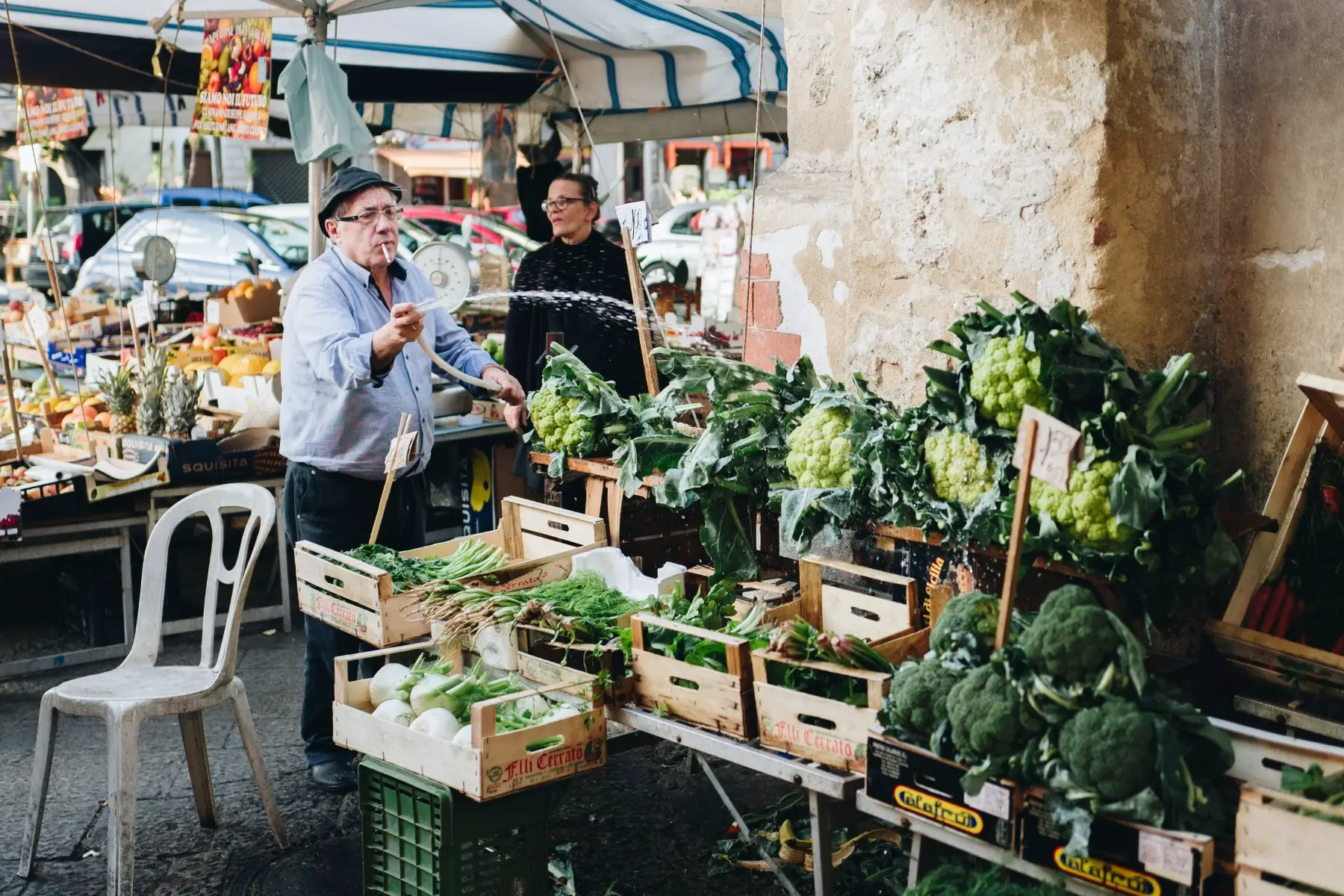
There are also smaller health food grocery chains like Naturasì. It specializes in natural (often cruelty-free) products, from food to toiletries and makeup. With many stores countrywide, Naturasì is one of the most popular options for health-food shopping. They also have delivery and pick-up options.
It is also worth listing the stores that aim to minimize plastic pollution by reducing packaging:
Buying ethical or fair trade products in Italy
Most supermarkets in Italy pride themselves on their local and fair trade product selections. For example, Conad has its fair trade product line, Verso Natura, while Esselunga follows a strict sustainability policy.
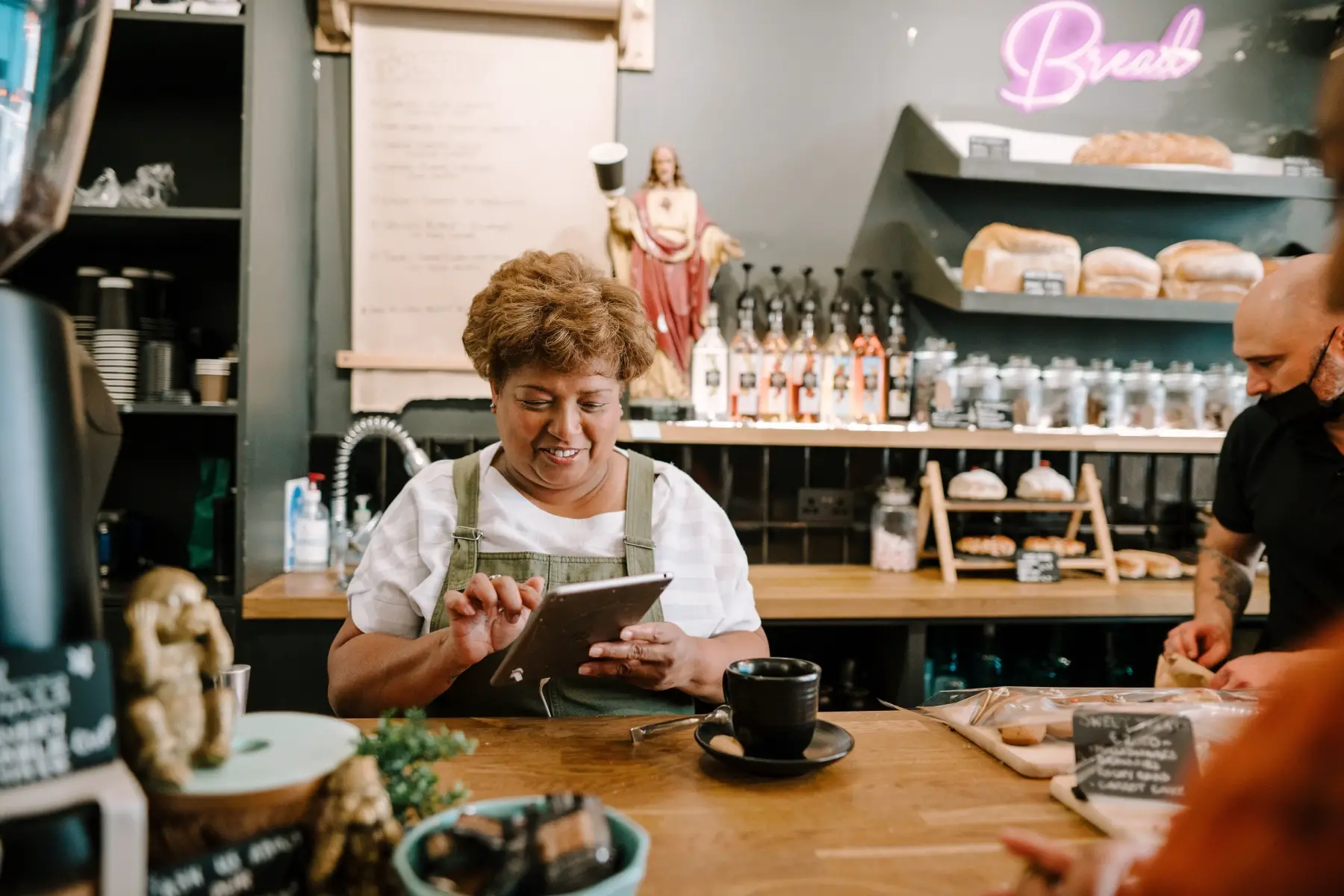
With a quick online search, you can also find smaller fair-trade, ethical stores, and sustainable clothing brands throughout Italy.
International grocery stores in Italy
As an expat living in Italy, you may want international products from your home country. You can usually find small, specialty, or ethnic stores in areas with larger migrant communities (e.g., larger cities).
Just ask your neighbors, or colleagues, or ask on social media. Be prepared to pay more for products than in regular supermarkets.
A few well-known international grocery stores include:
| Store name | Type of products/cuisine | City |
| Castroni | World cuisine | Rome |
| Pacific Trading S.r.l | Asian cuisine | Rome |
| Kathay International | Asian cuisine | Milan |
| Zen Market | Japanese and Korean cuisine | Milan |
Unieuro (electronics) and ePrice are great online resources if you can’t find something in a local store.
Food shopping at Italian markets
If you’re looking for the freshest products or want the authentic Italian experience, head to the closest market. Many Italian towns have neighborhood markets – on a piazza (square) – where local vendors set up from the morning until lunchtime. In larger cities, you may find these markets inside specific buildings.
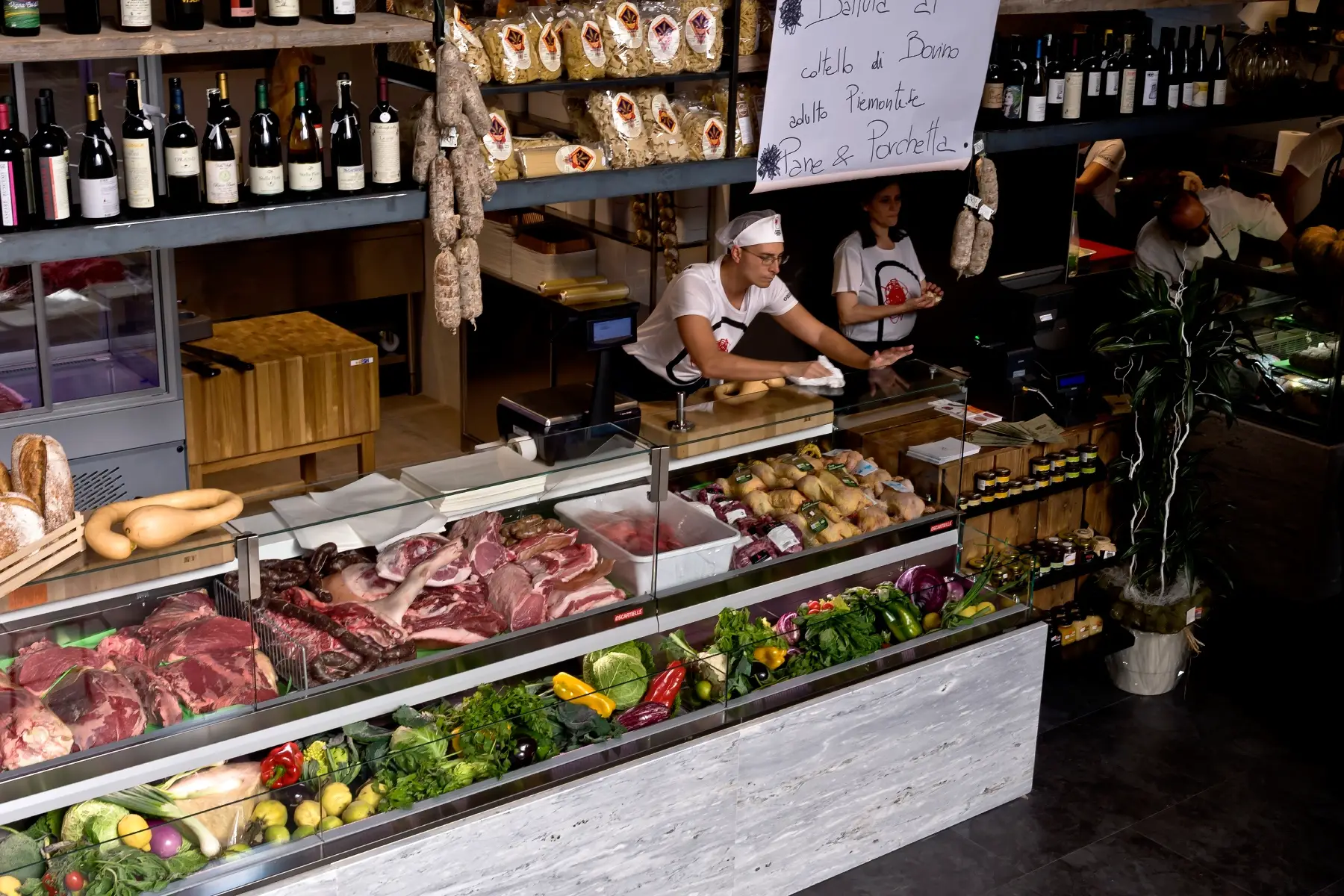
A few well-known fresh food markets include:
| Market | City |
| Mercato Centrale Di Roma | Rome |
| Testaccio Market | Rome |
| Sant’Ambrogio Market | Florence |
| Santo Spirito Market | Florence |
| Porta Nolana Fish Market | Naples (Napoli) |
| Mercato Pignasecca | Naples |
| The Quadrilatero | Bologna |
| Mercato Centrale | Bologna |
| Rialto Fish Market | Venice (Venezia) |
| Mercato Oriental | Genoa |
| Mercato Albinelli | Modena |
| Catania Fish Market | Sicily |
| Ortigia Market | Sicily |
| Piazza Del Popolo | Orvieto |
| Ballarò Market | Palermo |
| Mercato Di San Benedetto | Cagliari |
| Piazza delle Erbe/Piazza della Frutta Market | Padua |
| Piazza Campo del Palio | Asti |
| Fish Market | Gallipoli |
The best part about market shopping is the personal interaction with the stall owners who are passionate about their products. Do remember these etiquette points when shopping at the markets:
- Do not touch any produce unless given permission
- Be specific about the amount or weight of the product you want (e.g., ten tomatoes, 200 grams of cheese)
- Feel free to ask for suggestions, as many vendors enjoy advising you on how to prepare their products or will even give you recipes
Helpful Italian phrases at the food market
A few Italian phrases that may help you in the market include:
| English | Italian |
| Good morning/day/afternoon, sir/madam/miss | Buongiorno/giorno/pomeriggio, signore/signora/signora |
| I am well, thank you, and you? | Sto bene, grazie, e tu? |
| Please or Thank you | Per favore o Grazie |
| How much does it cost? | Quanto costa? |
| I would like (1, 2, 3, 4, 5, 6, 7, 8, 9, 10)/dozen/half-dozen | Mi piacerebbe (uno, due, tre, quattro, cinque, sei, sette, otto, nove, dieci)/dozzina/mezza dozzina |
| Goodbye | Arrivederci/Ciao |
| Organic | Biologica/Biologico |
| Eggs | Uova |
| Cheese | Formaggio |
| Bread | Pane |
| Fruit (apple, banana, orange, grapes, pineapple) | Frutta (mela, banana, arancia, uva, ananas) |
| Vegetables (pumpkin, courgette, aubergine, carrots, mushrooms, broccoli, spinach, cauliflower, potato) | Verdure (zucca, zucchine, melanzane, carote, funghi, broccoli, spinaci, cavolfiori, patate) |
| Salad (lettuce, tomato, onion, cucumber, avocado) | Insalata (lattuga, pomodoro, cipolla, cetriolo, avocado) |
| Herbs (chili, thyme, basil, oregano, parsley, garlic) | Erbe aromatiche (peperoncino, timo, basilico, origano, prezzemolo, aglio) |
| Pastas (Bigoli, Strozzapreti, Trofie, Gigli, Chitarra, Penne, Spagetti, Lasagne, Tagliatelle, Linguine, Fettucine) | Paste (Bigoli, Strozzapreti, Trofie, Gigli, Chitarra, Penne, Spagetti, Lasagne, Tagliatelle, Linguine, Fettucine) |
| Chicken | Pollo |
| Beef | Manzo |
| Pork | Maiale |
| Mutton/lamb | Montone/agnello |
| Fish (salmon, sardines, anchovies, cod, eel, clams) | Pesce (salmone, sardine, acciughe, merluzzo, anguilla, vongole) |
| Olive oil | Olio d’oliva |
Specialty stores in Italy
Many Italians prefer to shop daily for fresh and unique ingredients at their local:
- macelleria (butcher)
- forno (bakery)
- pasticceria (pastry shop)
- pescheria (fish monger)
- (fruttivendolo) greengrocer
You may pay more for produce in these specialty shops, but will enjoy excellent customer care and are assured of high-quality products.
Italian convenience stores
In almost every Italian neighborhood, you’ll find a tabacchi. These local convenience stores sell tobacco (as the name suggests), newspapers, magazines, lottery tickets, and stamps. You can pay utility bills and print documents at these shops.
Larger tabacchi stores also sell essential food products and soft drinks; many even have a little café.
Liquor stores and off-licenses in Italy
Liquor stores aren’t typical in Italy because you can purchase beer, wine, and spirits from grocery stores. Still, you will find these in larger cities and they often have longer opening hours.
On average, you’ll pay the following for these popular beverages:
- Local beer – from €1.30 per can/bottle
- Imported beer – from €1.80 per can/bottle
- Prosecco – from €4.00 per bottle
- Aperol Spritz – from €8.00 per bottle
- Limoncello – from €3.80 per bottle
- Wine – from €5.00 per bottle
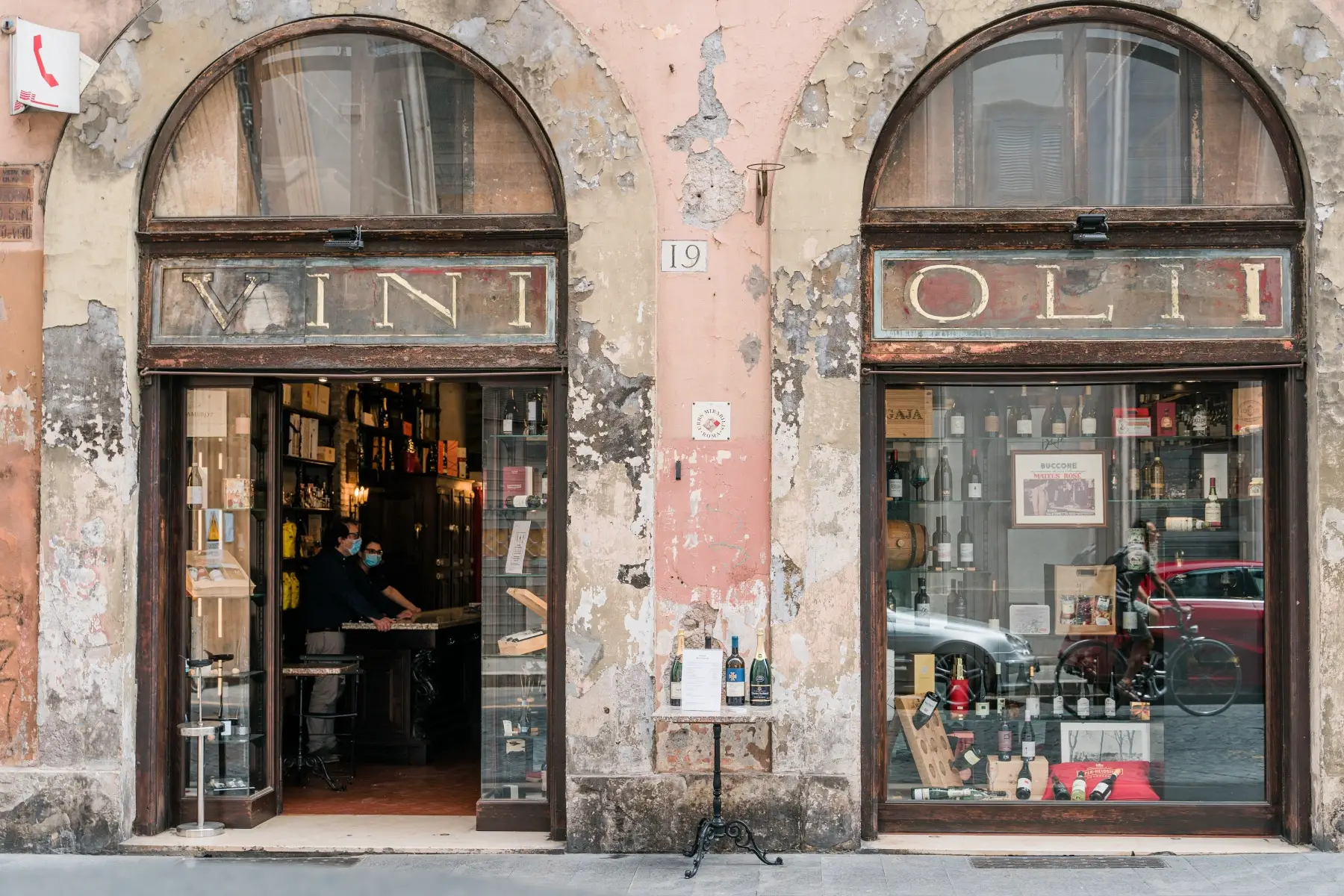
However, if you are specifically looking for a good quality wine, you will want to find an enoteca (wine shop).
If you prefer less kick in your aperitifs, Italy has a range of non-alcoholic drinks, such as:
- Chinotto
- Cedrata
- Crodino
- Spuma
- Orzata
- Gazzosa
- Gingerino
Many well-known Italian beer breweries also offer alcohol-free options like Nastro Azzuro Zero, Neroni Libera, and Freedl.
Saving money on groceries in Italy
You can find affordable products in most supermarkets and grocery stores in Italy. Many chains also have members-only discounts where customers sign up for loyalty cards and point systems to get special deals. Buying seasonal and local products is more sustainable and a great way to save money too.
Useful resources
- Forbes.com – lists the most affordable supermarkets in Italy (2022)
- Gambero Rosso – lists the top food markets in Italy
